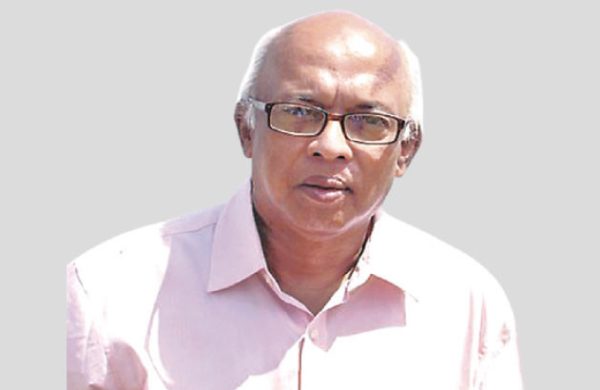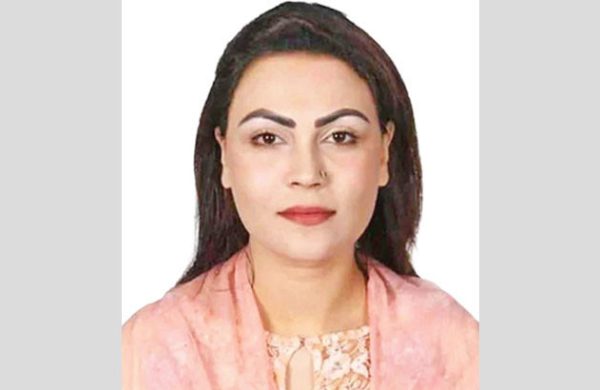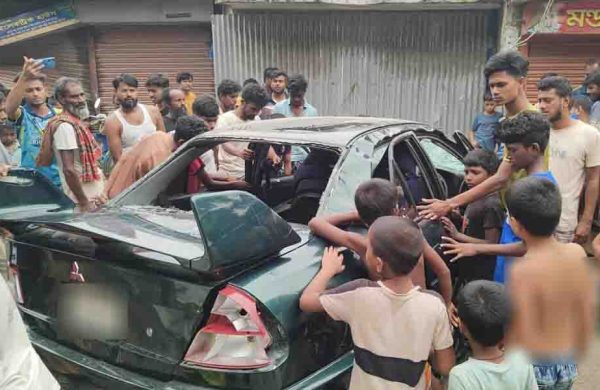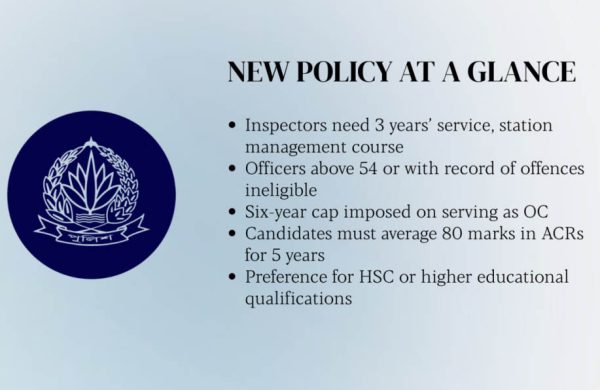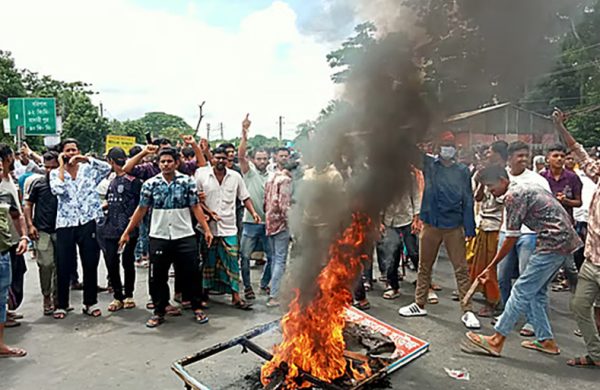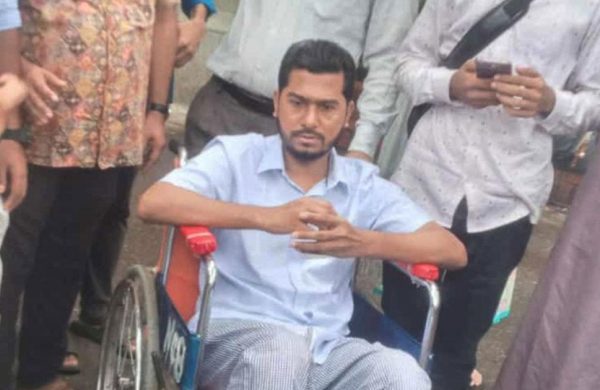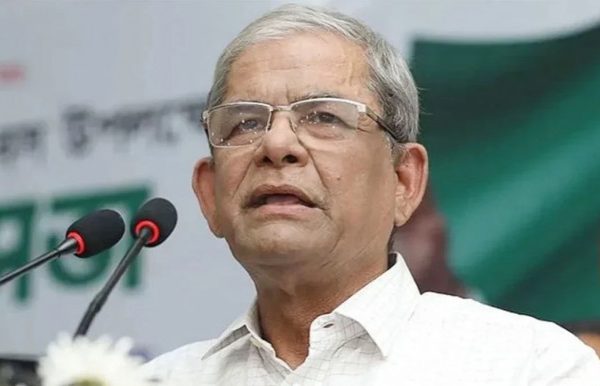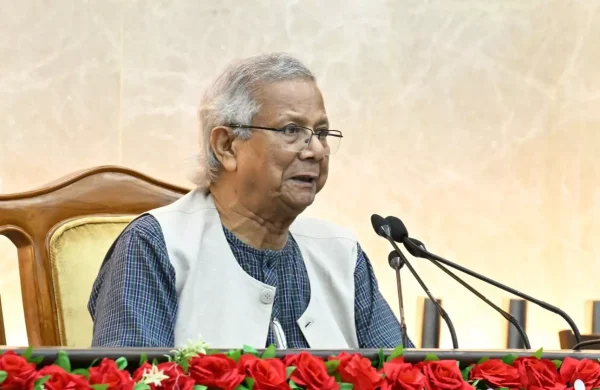History: The chronicles of January
- Update Time : Monday, January 6, 2025

—Syed Badrul Ahsan—
Months have significance in the lives of individuals as well as nations. In the Indian subcontinent, there have been the months which have resonated with its inhabitants in terms of history. Observe January. Go back to it as you have experienced it or as you have read about it. Chances are you will rediscover facts you were acquainted with once but may have set aside over the years. In the bitter cold of this January, why not go back in time to remind ourselves of what the month was like in some of the years which have gone by in our lives, particularly in the lives of the generations born in the 1950s and earlier?
Here, for those of us for whom history is a paramount presence in life, is a table enumerating the many stories of January in our part of the world, our subcontinent:
1941: On 26 January, Netaji Subhas Chandra Bose, under house arrest in Calcutta, evades security forces and escapes from his residence in disguise. He makes his way to Peshawar and from there to Kabul dressed as a Pathan. Eventually he turns up in Germany, where he will meet Adolf Hitler to solicit his assistance in his campaign to end British colonial rule in India.
From Germany Netaji will travel to Japan in a submarine and link up with the Tokyo authorities, who will assist him in setting up the Indian National Army (INA) and forming a government.
1948: On 30 January, Mahatma Gandhi (Mohandas Karamchand Gandhi), apostle of non-violence, crusader for Indian independence, Father of the Indian Nation, is assassinated in Delhi. Prime Minister Jawaharlal Nehru speaks for all Indians when he states, ‘The light has gone out of our lives.’
1962: In January, Huseyn Shaheed Suhrawardy, former Prime Minister of Pakistan and former Prime Minister of United Bengal, is arrested in Karachi by the Ayub Khan regime under the country’s security laws. Suhrawardy is kept in solitary confinement for a number of months and is never brought to trial, proving the charges against him are without merit. On his release, he travels to Beirut, where he passes away in December 1963. Suspicions about the nature of his death have lingered. A few months before his death, Zulfikar Ali Bhutto, at the time Pakistan’s Foreign Minister, warned Suhrawardy not to set foot in Pakistan. It was an ominous warning.
1963: Mohammad Ali, also known as Mohammad Ali Bogra — former ambassador, former Prime Minister of Pakistan and Foreign Minister in the regime of Field Marshal Mohammad Ayub Khan — dies in January 1963. He is replaced by Zulfikar Ali Bhutto, Minister for Industries and Natural Resources in the government.
1964: Huseyn Shaheed Suhrawardy, former Prime Minister of Pakistan, a founder of the Awami Muslim League (subsequently Awami League) and a pivotal force behind the opposition coalition known as the National Democratic Front (NDF), passes away in December 1963. In January 1964, his young protégé Sheikh Mujibur Rahman pulls the Awami League out of the NDF and sets the party on a distinctive political course in opposition to the Ayub Khan regime.
1965: A presidential election based on the Basic Democracy system, comprising 80,000 Basic Democrats equally divided between East and West Pakistan and empowered to vote at the ballot box, is held on 2 January. Pitted against Fatima Jinnah, sister of Pakistan’s founder Mohammad Ali Jinnah and presidential candidate of the Combined Opposition Parties (COP), President Ayub Khan wins the vote. General Ayub Khan seized power through a coup d’etat in October 1958 and soon promoted himself to Field Marshal.
1966: Indian Prime Minister Lal Bahadur Shastri and Pakistan President Ayub Khan meet at a summit in Tashkent through the mediation of Soviet Premier Alexei Kosygin to reach a peace deal following a 17-day war between their two countries in September 1965. The deal, known as the Tashkent Declaration, is signed by the two leaders on 10 January. A few hours later, Shastri dies of a heart attack. His remains are flown to Delhi the next day. Later in January, India’s ruling Congress elects Indira Gandhi, Minister for Information and Broadcasting and daughter of Jawaharlal Nehru, as its new parliamentary leader. Aged forty-eight, she is sworn in as India’s third Prime Minister.
1968: The Pakistan government, having announced in December of the previous year the unearthing of a secessionist conspiracy to have East Pakistan break away from the rest of Pakistan, names Sheikh Mujibur Rahman as the number one accused in the conspiracy. There are thirty-four other accused, all Bengalis, implicated in the conspiracy. Mujib, not yet Bangabandhu, is shifted from Dhaka Central Jail, where he has been lodged since May 1966, to maximum security imprisonment in Dhaka cantonment. Proceedings of the case, popularly known as the Agartala Conspiracy Case, will commence before a Special Tribunal in June.
1969: All through January, a mass movement gathers pace against the Ayub Khan regime in East Pakistan. Demands for the withdrawal of the Agartala Case and release of Sheikh Mujibur Rahman are spearheaded by students of Dhaka University. Moulana Abdul Hamid Khan Bhashani, a leading voice in the agitation, warns the regime of the consequences of its repressive policies. Students, academics and common citizens are shot dead by security forces in Dhaka and elsewhere. In West Pakistan, agitation builds through escalating protests by students in Karachi and Lahore. Demands are made for the release of ZA Bhutto and Khan Abdul Wali Khan, who were arrested in November of the preceding year.
1970: In January, political activities resume in Pakistan, with political parties launching their campaign for the general election promised by the regime of General Agha Mohammad Yahya Khan, Pakistan’s second military ruler who took over from Ayub Khan in March 1969, for later in the year. Bangabandhu Sheikh Mujibur Rahman, at his party rally at Dhaka’s Paltan Maidan, makes it known that the election will be a referendum on the Awami League’s Six-Point programme of regional autonomy. In West Pakistan, Zulfikar Ali Bhutto’s Pakistan People’s Party (PPP), formed in November 1967, campaigns on its programme of Islam, democracy and socialism. The election, initially scheduled for October, will be shifted to December because of devastating floods in East Pakistan.
1971: On 3 January, Bangabandhu Sheikh Mujibur Rahman, having led the Awami League to a landslide electoral victory, conducts an oath-taking ceremony of members of the National and Provincial Assemblies elected on the Awami League ticket. The members-elect pledge to uphold the party’s Six-Point plan in the formulation of Pakistan’s constitution by the newly elected National Assembly. Later in the month, Bhutto, whose PPP has won a majority of seats in West Pakistan, leads a delegation to Dhaka for talks with Bangabandhu and the senior leadership of the Awami League. Bhutto leaves a few days later after apparently failing to convince Bangabandhu to moderate the Six Points.
1972: On 3 January, Pakistan’s new President Zulfikar Ali Bhutto, having succeeded Yahya Khan in the aftermath of the Pakistan army’s surrender in Dhaka and Bangladesh’s liberation from Pakistan in December 1971, addresses a public rally in Karachi. He asks the crowd if he has its permission to release Sheikh Mujibur Rahman, who has been imprisoned in (West) Pakistan since March 1971, from incarceration. The crowd roars ‘Yes’, to which Bhutto responds, ‘shukriya, shukriya, shukriya’. On 8 January, Bhutto says farewell to Bangabandhu, who flies to London. The Father of the Nation returns to a sovereign Bangladesh on 10 January.
1975: Early in January, Siraj Sikdar, leader of the Sarbahara Party, is arrested by security forces. He is later killed in circumstances that have never been explained. On 25 January, Bangabandhu Sheikh Mujibur Rahman brings about sweeping political changes in Bangladesh. The fourth amendment to the constitution moves politics away from a parliamentary form of government to a presidential system, with Bangabandhu leaving prime ministerial office and taking over as President. The move will put an end to multi-party democracy in the country and lead to the creation of the Bangladesh Krishak Sramik Awami League (Baksal), with all other parties coming under proscription.
Thus the chronicles of January as we have known them.
—————————————————————————
Syed Badrul Ahsan writes on politics, diplomacy and history


